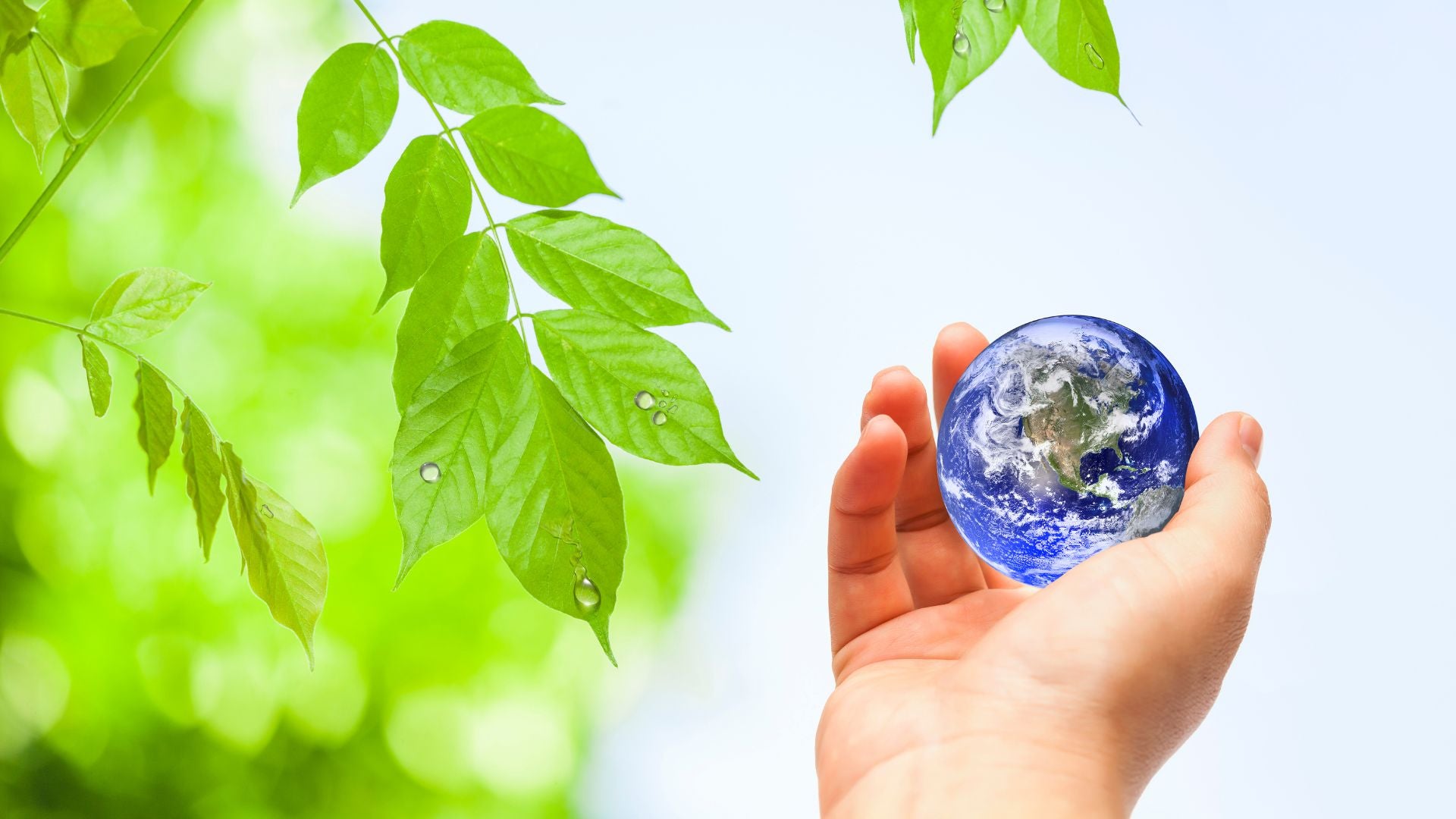
In a world where sustainability and environmental consciousness are becoming increasingly important, it's crucial to uncover the truth behind everyday products we use. One such product that often goes overlooked is soap. Traditional soap, with its seemingly harmless composition, may not be as innocent as it appears. From the manufacturing process to the disposal of its packaging, the environmental impact of traditional soap can be surprisingly detrimental. However, there is a glimmer of hope in the form of eco-friendly alternatives. These innovative alternatives aim to minimize harm to the environment without compromising on cleanliness and personal hygiene. In this article, we will delve into the hidden environmental consequences of traditional soap and explore the benefits of eco-friendly soap options. So, let's dive in and discover how a simple switch in your soap choice can make a significant difference in reducing your carbon footprint and protecting our planet.
Traditional soap: How it is made and its environmental impact
Traditional soap, the kind we've been using for generations, is typically made from a combination of fats or oils and an alkaline solution. While the ingredients themselves may not immediately raise alarm bells, the process of manufacturing traditional soap is not as eco-friendly as one might think. The production of traditional soap often involves the use of large amounts of energy, water, and chemicals.
During the manufacturing process, various harmful substances and by-products are released into the environment. These include phosphates, which contribute to water pollution and can have detrimental effects on aquatic life, and volatile organic compounds (VOCs), which contribute to air pollution and can be harmful to human health. Additionally, the disposal of wastewater from soap production can further contaminate water sources if not treated properly.
The environmental impact of traditional soap extends beyond its production. The packaging of traditional soap often involves the use of plastic, which contributes to the global plastic waste crisis. With billions of soap bars sold each year, the accumulation of plastic packaging in landfills or oceans poses a significant threat to the environment.
The harmful ingredients in traditional soap and their impact on the environment
Beyond the manufacturing process, traditional soap also contains ingredients that can have a negative impact on the environment. Many traditional soaps contain synthetic fragrances, dyes, and preservatives that are derived from petrochemicals. These substances can persist in the environment and contribute to water pollution when they are washed off our bodies and down the drain.
Additionally, some traditional soaps contain antibacterial agents like triclosan, which have been found to disrupt aquatic ecosystems and contribute to the emergence of antibiotic-resistant bacteria. When these chemicals make their way into water bodies, they can harm aquatic life and disrupt the delicate balance of ecosystems.
The benefits of eco-friendly alternatives
Fortunately, there is a growing range of eco-friendly soap alternatives that offer a cleaner and greener option for personal hygiene. These alternatives are made using natural and organic ingredients, and their production processes are designed to minimize harm to the environment.
One of the significant benefits of eco-friendly soap options is that they often contain fewer harmful chemicals. Instead of synthetic fragrances and dyes, natural and organic soaps use essential oils and botanical extracts for scent and color. These natural ingredients not only provide a pleasant fragrance but also offer therapeutic benefits for the skin.
In addition to being free from harmful chemicals, eco-friendly soaps are often biodegradable. This means that they can break down naturally without causing harm to the environment. Unlike traditional soaps, which can contain non-biodegradable ingredients that persist in the environment for years, eco-friendly soaps are designed to have minimal impact on ecosystems.
Natural and organic soaps
Natural and organic soaps have gained popularity in recent years due to their gentle and eco-friendly nature. These soaps are made from plant-based oils and fats, such as coconut oil, olive oil, and shea butter. These ingredients are not only beneficial for the skin but also have a lower environmental impact compared to the animal fats used in traditional soap production.
Many natural and organic soaps also incorporate botanical ingredients known for their nourishing and soothing properties. For example, aloe vera, chamomile, and lavender are commonly used in these soaps to provide additional skincare benefits. These natural ingredients are often sourced sustainably, ensuring that their cultivation does not contribute to deforestation or habitat destruction.
The manufacturing processes of natural and organic soaps are designed to be more environmentally friendly. Some soap makers use traditional methods, such as cold process or hot process, which require less energy and produce less waste compared to industrial soap production. Furthermore, these soaps are often packaged in recyclable or biodegradable materials, further reducing their environmental impact.
Biodegradable and zero waste soaps
Another category of eco-friendly soap options gaining traction is biodegradable and zero waste soaps. These soaps are specifically formulated to break down easily in natural environments, reducing the accumulation of waste in landfills and oceans. Biodegradable soaps often use natural ingredients and avoid synthetic chemicals that can persist in the environment.
Zero waste soaps take the concept of sustainability a step further by eliminating packaging waste altogether. These soaps are typically sold in solid bar form, eliminating the need for plastic or other non-biodegradable packaging materials. By choosing zero waste soaps, consumers can make a significant impact in reducing plastic waste and preserving our planet's natural resources.
The manufacturing process of biodegradable and zero waste soaps is often aligned with sustainable practices. Soap makers strive to minimize waste and energy consumption by using environmentally friendly production methods. Some manufacturers even go the extra mile by sourcing ingredients locally and supporting fair trade practices.
The packaging of traditional soap vs. eco-friendly alternatives
When considering the environmental impact of soap, it's essential to examine the packaging as well. Traditional soap is often packaged in plastic containers or wrapped in plastic film, contributing to the global plastic waste problem. These packaging materials take hundreds of years to break down, polluting our oceans and harming wildlife.
In contrast, eco-friendly soap alternatives often come in packaging that is designed to minimize waste and environmental impact. Natural and organic soaps are often packaged in paper or cardboard, which can be recycled or composted. Biodegradable and zero waste soaps, as mentioned earlier, eliminate packaging waste altogether by using solid bar forms or innovative packaging materials like plant-based cellophane.
By choosing eco-friendly soap options with sustainable packaging, consumers can make a significant contribution to reducing plastic waste and promoting a circular economy.
Consumer behavior and the environmental impact of soap choices
Consumer behavior plays a crucial role in determining the overall environmental impact of soap choices. By consciously opting for eco-friendly soap options, consumers can make a positive difference in reducing their carbon footprint and protecting the environment.
One way consumers can make a switch to eco-friendly soaps is by educating themselves about the environmental consequences of traditional soap and the benefits of eco-friendly alternatives. By understanding the impact of their choices, consumers can make more informed decisions and actively seek out sustainable soap options.
Additionally, consumer demand for eco-friendly soap options can drive innovation and encourage more manufacturers to produce sustainable products. As more consumers choose eco-friendly soaps, manufacturers will be motivated to invest in greener production methods and packaging solutions, leading to a more sustainable industry as a whole.
Making the switch: How to transition to eco-friendly soap options
Transitioning to eco-friendly soap options is a relatively simple process that can have a significant impact on the environment. Here are some practical steps to help make the switch:
1. Research and educate yourself about eco-friendly soap options: Familiarize yourself with the different types of eco-friendly soaps available and their benefits. Consider factors such as ingredients, manufacturing processes, and packaging.
2. Look for certifications and eco-labels: When choosing eco-friendly soaps, look for certifications and eco-labels that indicate sustainable practices and environmentally friendly ingredients. Certifications like USDA Organic and Fairtrade can provide assurance of the soap's eco-friendliness.
3. Support local and small-scale soap makers: Many local and small-scale soap makers prioritize sustainability and use natural, locally sourced ingredients. By supporting these businesses, you can contribute to local economies and reduce the carbon footprint associated with transportation.
4. Make your own soap: For those who are more adventurous, making your own soap can be a rewarding and eco-friendly option. By using natural ingredients and reusable molds, you can create personalized soaps while minimizing waste and packaging.
5. Share your knowledge and encourage others: Spread the word about the environmental impact of traditional soap and the benefits of eco-friendly alternatives. Encourage friends and family to make the switch and create a ripple effect of positive change.
The importance of choosing eco-friendly soap for a sustainable future
The environmental impact of traditional soap is often overlooked, but it is significant. From the manufacturing process to the disposal of plastic packaging, traditional soap can have detrimental effects on the environment. However, there is hope in the form of eco-friendly soap alternatives.
Eco-friendly soaps, whether natural and organic or biodegradable and zero waste, offer a cleaner and greener option for personal hygiene. These soaps are made using sustainable ingredients and production methods, and their packaging is designed to minimize waste. By choosing eco-friendly soap options and encouraging others to do the same, we can make a positive impact on the environment and work towards a more sustainable future. So, let's take that first step in reducing our carbon footprint and protecting our planet by making the switch to eco-friendly soap today.

Disclaimer :
The information provided on The Smelly Panda Soap Company site and in our articles is for informational purposes only. We are not medical professionals, and the content we provide should not be considered a substitute for professional medical advice, diagnosis, or treatment. Always seek the advice of your physician or another qualified healthcare provider with any questions you may have regarding a medical condition. Never disregard professional medical advice or delay in seeking it because of something you have read on The Smelly Panda.
The Smelly Panda Soap Company and its authors do not endorse or recommend any specific tests, physicians, products, procedures, opinions, or other information that may be mentioned on the website. Reliance on any information provided by The Smelly Panda Soap Company is solely at your own risk.
While we strive to provide accurate and up-to-date information, The Smelly Panda Soap Company makes no representations or warranties of any kind, express or implied, about the completeness, accuracy, reliability, suitability, or availability of the information contained on the website or in our articles. Any reliance you place on such information is therefore strictly at your own risk.
In no event will The Smelly Panda Soap Company or its authors be liable for any loss or damage, including without limitation, indirect or consequential loss or damage, or any loss or damage whatsoever arising from loss of data or profits arising out of, or in connection with, the use of this website.
Through this website, you may be able to link to other websites that are not under the control of The Smelly Panda Soap Company. We have no control over the nature, content, and availability of those sites. The inclusion of any links does necessarily imply a recommendation or endorsement of the views expressed within them.
Every effort is made to keep the website up and running smoothly. However, The Smelly Panda Soap Company takes no responsibility for, and will not be liable for, the website being temporarily unavailable due to technical issues beyond our control.
Please note that the content on The Smelly Panda may be updated or modified without notice, and we do not guarantee the accuracy, relevance, or timeliness of the information provided.
By using The Smelly Panda, you acknowledge and agree to the terms of this disclaimer. If you do not agree with this disclaimer or any part of it, we kindly ask that you refrain from using our website.


